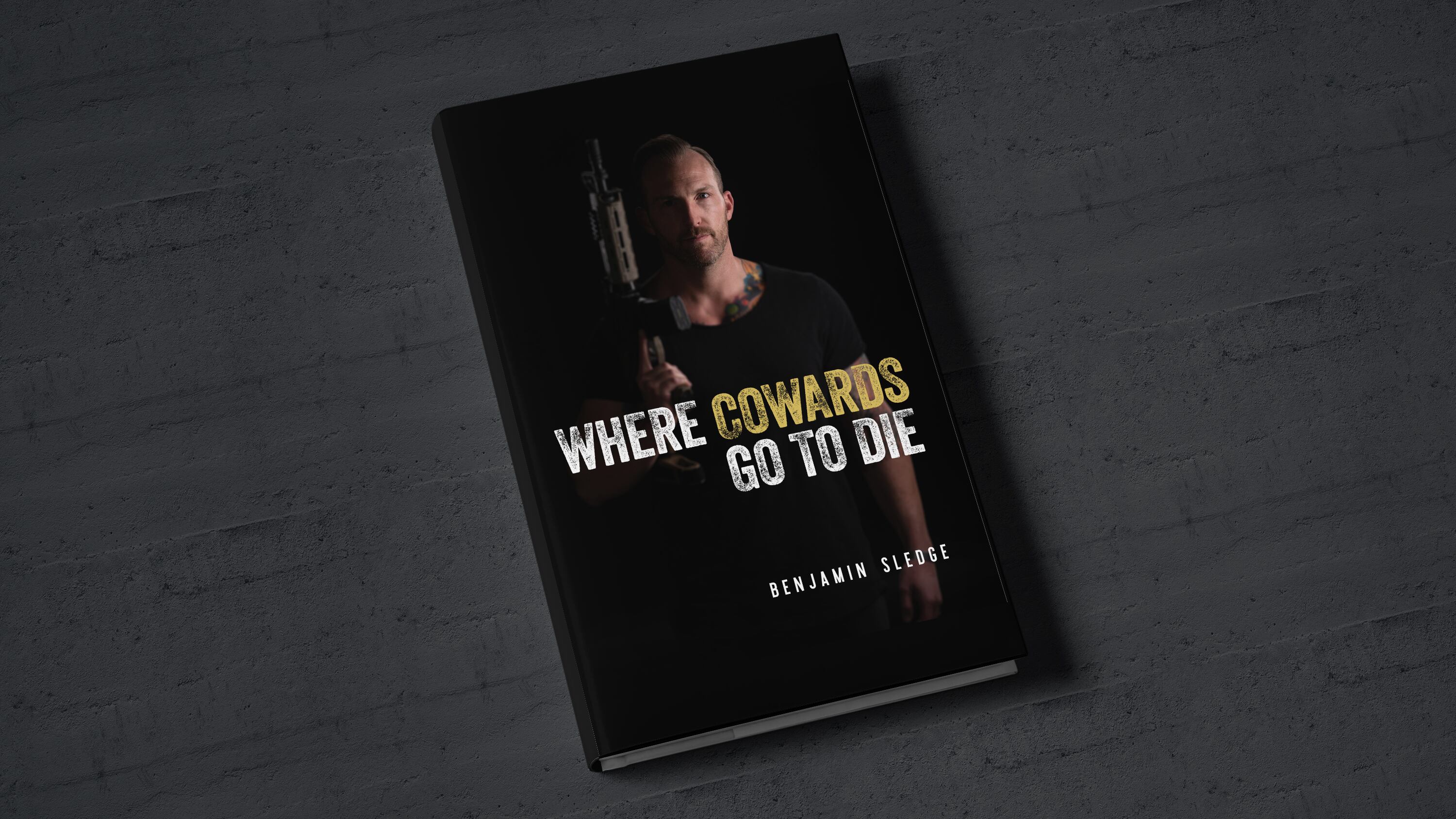Since U.S. troops were withdrawn from Afghanistan in August 2021, journalists, politicians and pundits have been scrambling to put together narratives about the last 20 years of war.
But what about the stories of the thousands of veterans who spent two decades in the Middle East?
We’re only just beginning to scratch the surface of what it meant to serve in the Global War on Terror, according to Army veteran and first-time author Benjamin Sledge. He hopes his upcoming book, “Where Cowards Go to Die,” will change the way people write and understand Post-9/11 veteran stories.

“One of the key things that I’ve noticed is that a lot of the stories are incomplete, or they’re completely broken,” Sledge told Military Times. “I wanted to tell a very true war story where I’m not some war hero. More often than not, I kind of look like a moron inside the book.”
The memoir features all manner of personal anecdote, from growing up in a religious family to a time when Beyoncé almost ruined the lives of some of the soldiers in his unit. It’s filled with conscientious controversy being both hallowed and irreverent — an earnest depiction of the dichotomy of the modern service member.
Before you were a writer, you were a soldier. Where and when did you serve?
I joined the Army in 1999 and I got out in 2010. I was with the 486th Civil Affairs Battalion — that was a reserve unit but I ended up spending about four years on active duty so that one weekend a month thing is just total bullshit.
I separated as a staff sergeant. I made E-7, but it came with indefinite enlistment, so I declined the promotion and got out.
I did nine months in Afghanistan to the border province of Paktika, [Forward Operating Base] Orgun-E and Shkin. Then Iraq was a 15-month deployment to Ramadi.
What inspired you to write the book?
I went to [one of my editors] on Medium when I was kind of hitting a writer’s block stage and said, “Hey, what do you guys like reading?” And she said, “Oh, well, I love your war stuff.”
I was like, “Oh, well, I’m not writing on that.”
She said, “All those stories that could connect us are being lost to the annals of history. It’s a travesty that you won’t talk about it.”
That really changed my perspective. I began writing about it. One of my other younger enlisted soldiers had begun to kind of chronicle his own stories for his children just as comments on my WordPress blog, and it gave me the insight and the passion to start writing everything down.
How did you come up with the title?
I had the title long before, when I had the ending in mind. I realized that the name of the book was really encompassing a lot about the struggles that we face as human beings — the struggles that soldiers, sailors, airmen and Marines face, especially in combat. The synopsis that I came to is that in life, you will either die a coward or a coward has to die in order for you to thrive.
I wanted to tell a true war story, but the cowardice in me wanted to stay safe, and make it look like I was awesome. But I realized that in order for me to write a true horror story, I couldn’t do that. The cowardice in my own heart and what people thought of me had to die. The line that I end with is that the coward in me wants to stay safe, but as with anything that brings about purpose and meaning, a coward has to die.
How is this book different from others?
I wanted to tell the story of what happens 10 years after the events of coming home, when you’ve been involved in this, and you have to live with the person that you are, and you’re in a society that you no longer feel is home to you anymore. That, for me was really kind of the differentiator between [mine and] other books right now. I’m not saying that they’re bad, but they’re just stories of combat, and mine, obviously encompasses that. But there are, there are things that I did in combat, that are in the book that made me look more or less like a monster as opposed to a human being.
What do you want readers to glean from this book?
I love Tim O’Brien, who wrote “The Things They Carried.” He has this quote, where he basically says that there is nothing redeeming about a true war story, it’s not moral. If at the end of it, you feel uplifted, you’ve been the victim of a great lie. That’s the thing that I think I found to be true.
These are stories that I didn’t tell my wife — that she didn’t know about for a really long time. There are stories of bodies that are mutilated, that are stuck in my head, because of suicide bombers. I wanted to get people inside that mentality, where they got to see the really good, the really bad, and the really ugly.
One minute we’re overseas, and then the next minute, we’re home. And suddenly home doesn’t feel like home, and civilians are so far removed from what we’ve seen or done in combat. It doesn’t really affect their day-to-day life. What I want to do with civilians is get them to understand kind of the moral quagmire that we had to endure.
How did you get your start in writing?
I actually got my start writing on a fan forum for 30 Seconds to Mars. And then for a while I read stories to my cat, because I thought she was the only one that would pay attention to my stories.
One day, I ended up writing an article called “The Conversation about War and Veterans We Refuse to Have,” and that was kind of the spark.
I talked about the problems that soldiers, sailors, airmen and Marines, face upon returning home from one of the longest running wars in the history of the United States and the quagmires that we encounter overseas, and then what it’s like to come home.
“Where Cowards Go to Die” will be released on July 5, 2022.
Sarah Sicard is a Senior Editor with Military Times. She previously served as the Digitial Editor of Military Times and the Army Times Editor. Other work can be found at National Defense Magazine, Task & Purpose, and Defense News.
In Other News















